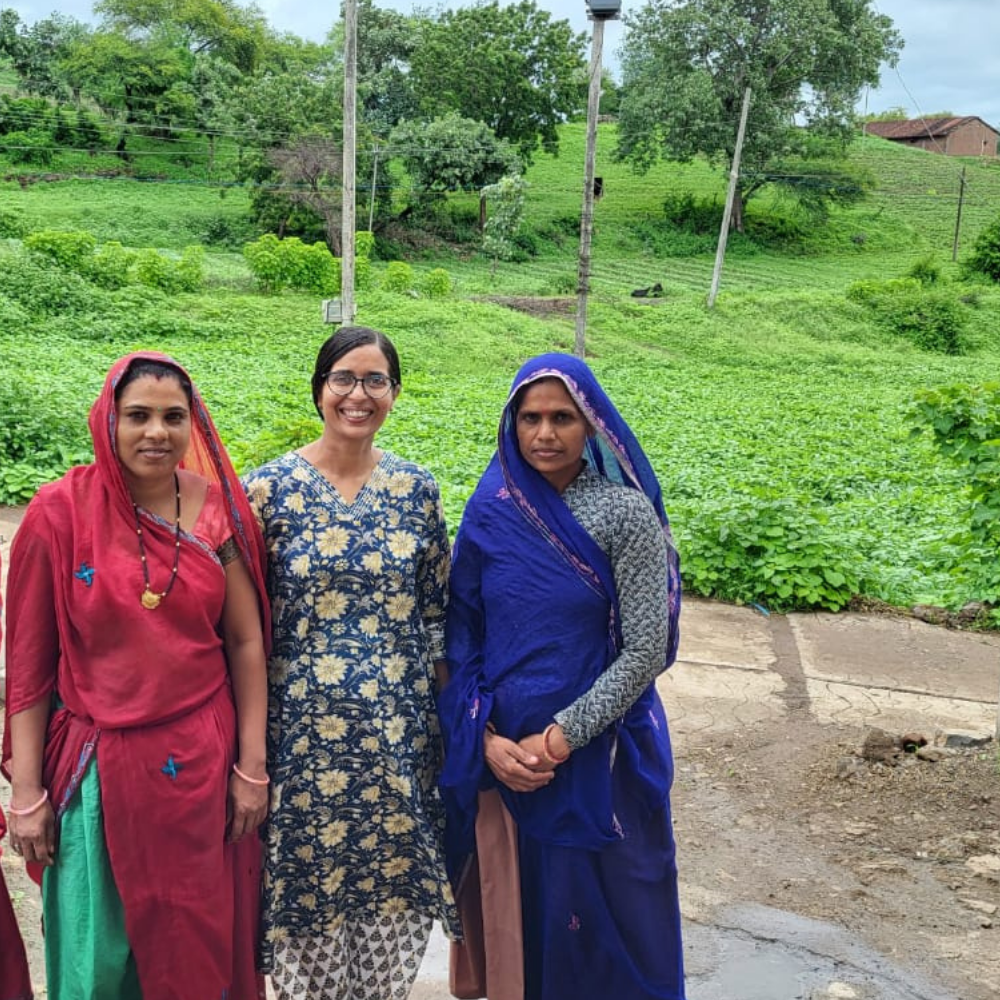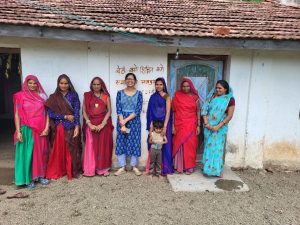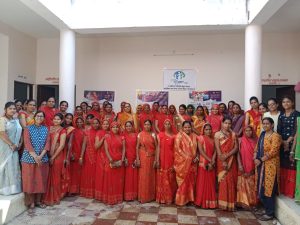- Finding Solutions, Stories from the Field
by Ankit Kumar
Chhattisgarh

Hi, I am Pallavi,
“Your life does not get better by chance, it gets better by change.”
This is a line I return to, time and again, whenever I meet the real changemakers of India—rural women, or as I affectionately call them, Didis. Each encounter with them has transformed my understanding of resilience, hope, and the true meaning of progress.
The Consultant’s Distance
Before my journey with Transform Rural India (TRI) began, I worked on various government-linked projects, spanning gender, health, communication, decentralized planning. I was committed, passionate, but always at arm’s length. I was a Consultant: designing programs, advising service providers, observing communities from behind a glass wall. I saw the people, but never truly saw them. That distance gnawed at me. I wanted to be part of the real growth story of India—not just a bystander, but a participant.

Immersion: No Safety Net
So, in 2018, I took the plunge. I joined TRI as an Engagement Manager for the Mission Antyodaya Action Pilot block in Manawar, Madhya Pradesh. This time, there was no buffer—no safety net. It was just me, face-to-face and heart-to-heart with the SHG Didis. Suddenly, the world I thought I knew cracked open. My very first Cluster Level Federation (CLF) meeting was like pulling back a curtain on a stage I’d never seen before.
Gone were the timid silhouettes I’d imagined—women hidden behind ghunghats, soft-spoken, addressed as “bai” with a note of distance. Instead, I found Didis—bold and vocal, calculating lakhs of rupees on their fingertips, tracking loans, holding each other accountable with fierce clarity.
With my team, I facilitated visioning exercises with CLF and Village Organisation members. There I saw – women stood up, not just with dreams for themselves, but for their families and villages. I remember asking a senior colleague, “Will women really step up for their village’s well-being?” He smiled and said, “Just wait.” He was right.
In one village, as we discussed barriers to education, an elderly woman—Matli Didi—rose and declared, “I never got the chance to study, but I’ll make sure my grandchildren and every child in this village gets that chance.” In another, a Didi who lost a relative to unsafe home delivery pledged to ensure institutional births in her community.
From Hesitation to Influence
I started seeing the transformation that was rapid and profound. Rural women, once unaware of their own power, began influencing systems. Women who once signed documents with thumbprints now demanded to be true change agents. I saw them drafting Gram Panchayat Development Plans—not just asking for funds, but creating zero-budget community action plans. Through Nari Adhikar Kendras, they discussed gender-based violence, reaching out to police and One Stop Centres for support. In Compact forums, they presented solutions to local issues. With women-led FPOs, they entered the world of agri-business, negotiating with confidence and vision.

Becoming, Not Just Doing
Looking back, my journey with TRI was never just about professional milestones. It was about becoming—unlearning assumptions, relearning humility, and learning to truly listen to the wisdom of our villages. I started with my feet in the field, heart with the Didis. Over time, I bridged their stories with systems, bringing the voices of rural women to government tables. Today, as Community Action Lab State Lead for Madhya Pradesh, I see these ripples of change flowing across several blocks of Madhya Pradesh—bolder, deeper, and more unstoppable than ever.
TRI didn’t just give me a job. It gave me the privilege to walk beside these women—not as an expert, but as a learner. It gave me room to try, to fail, to innovate, and to rise again. Most importantly, it gave me a reason to believe in the extraordinary power of ordinary people.
Every Didi, a Story of Change
Every Didi I meet is a powerhouse of resilience. As I tell my own story today, I feel compelled to tell theirs too:
These aren’t isolated stories. They’re a chorus—a movement of women reshaping rural life, co-creating change with Samaj, Sarkar, and Bazaar, and redefining grassroots leadership.
The Change That Changed Me
Every time a Didi speaks up, takes charge, questions a norm, or volunteers to bring change, it doesn’t just transform her village—it transforms me too. This journey has left deep marks on my professional path, but even deeper ones on who I am. Because my Didis not just inspire change, they are the Change.
This is why it matters that more and more women join this movement—because the vision of Viksit Bharat can only become reality when every Didi’s voice is heard, and every story is told.
Genderlivelihoodwomen
Reach us at
TRI Square,
43 Community Centre Zamrudpur,
Kailash Colony Extension,
Behind Hanuman Mandir,
New Delhi,
Delhi 110048
+91 11 2923 1314